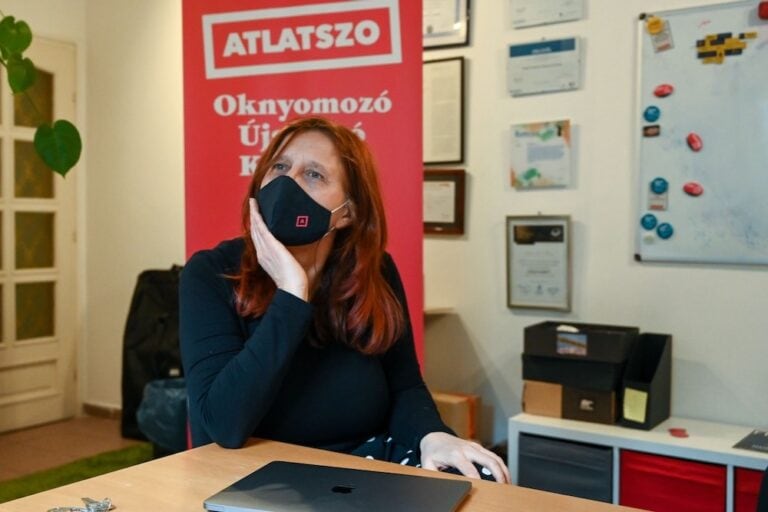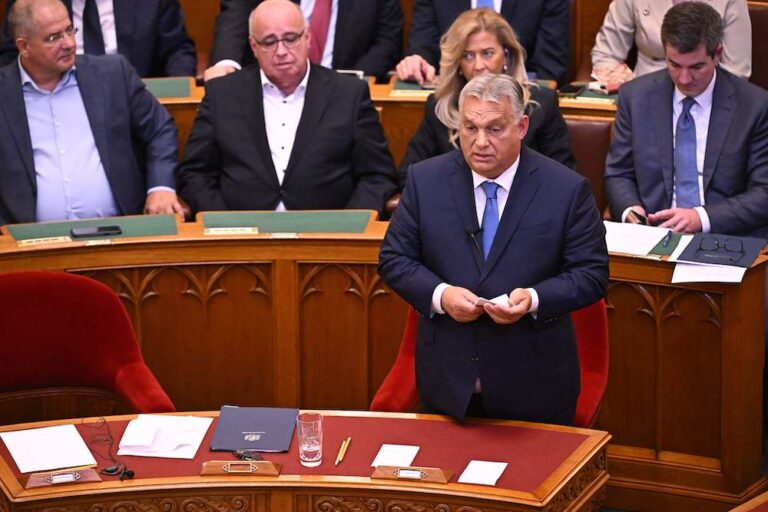(IFJ/IFEX) – The following is an IFJ media release: IFJ Report Accuses Hungary Over “Improper Political Influence” As Public TV Faces Bankruptcy THE International Federation of Journalists, the world’s largest journalists’ group, today launched a hard-hitting attack on the government and authorities in Hungary over mistreatment of journalists and the ruinous state of the public […]
(IFJ/IFEX) – The following is an IFJ media release:
IFJ Report Accuses Hungary Over “Improper Political Influence” As Public TV Faces Bankruptcy
THE International Federation of Journalists, the world’s largest journalists’ group, today launched a hard-hitting attack on the government and authorities in Hungary over mistreatment of journalists and the ruinous state of the public broadcasting system.
A 60-page report, “Television on the Brink”, produced for the IFJ and its regional group, the European Federation of Journalists, concludes that Hungarian public broadcasting, and public television in particular, “has been weakened to the point of destruction because of political manipulation and willful neglect by the responsible authorities.”
The journalists accuse the Government of Viktor Orbán of launching a new “media war” over journalism critical of the government. The report cites numerous incidents over the past two years of government-inspired interference that amounts to “a circle of improper political influence, which threatens freedom of expression in Hungary.”
At the same time, Hungarian Television is on the verge of collapse with viewing figures down to less than ten per cent of the national audience because of “drifting, aimless management, supervised by a complacent political process.”
An IFJ four-person team visited Budapest last month and met with journalists, media experts and political leaders. The visit comes after two years of crisis in public broadcasting caused by deadlock in Parliament over political nominations to the supervising bodies of radio and television. Political control over these boards must be abolished, says the Report. “There is, we believe, no place for politicians in the formal administration of public broadcasting.”
The IFJ warns that the media crisis is damaging Hungary’s reputation abroad and may jeopardise current negotiations over Hungarian accession to the European Union. The leaders of the IFJ and the European Federation of Journalists are to call on the European Commission and the Council of Europe to investigate the situation.
The report condemns the purging of journalists and others from their jobs and expresses concern over violations of the social rights of media staff. More than 1,000 jobs have been cut from Hungarian Television and hundreds of staff have not been paid for months. In Hungary, almost 75 per cent of all journalists have been forced into freelance work, creating an underclass of exploited workers.
“Journalists and media staff have been treated with contempt and made to pay for the billowing debts of the public television,” says the Report, “Savage job cuts and delays in payment of salaries and fees over many months coupled with purging of key editorial posts on political grounds had devastated morale.”
Leaders of the IFJ and European Federation of Journalists meeting in Brussels at the weekend endorsed the mission report. Among the recommendations are:
– That political interference in media is ended and action taken to strengthen editorial independence in public broadcasting;
– That the system of political appointments to the Boards of Trustees of public media is replaced by the introduction of a system based wholly on civil society in line with European standards;
– That Government hands over control of Boards of Trustees of Radio and Television and agrees on interim structures until a new system is in place;
– That an urgent review of media law and policy is carried out to bring public broadcasting in Hungary up to the minimum European standards;
– That a new system of financing public broadcasting should increase investment in public service media to match levels in other countries of Europe;
– That the legal protection of the employment rights of journalists and other media staff should be strengthened and;
– That more support is given to Hungarian journalists’ associations and unions striving to improve ethical standards through self-regulation and training of journalists.
The IFJ Report comes at a time of increasing turbulence in the media scene of central Europe following the strike by journalists and staff over alleged political interference at Czech Television at the end of last year and protests in recent days by staff at Bulgarian National Radio over similar allegations.


